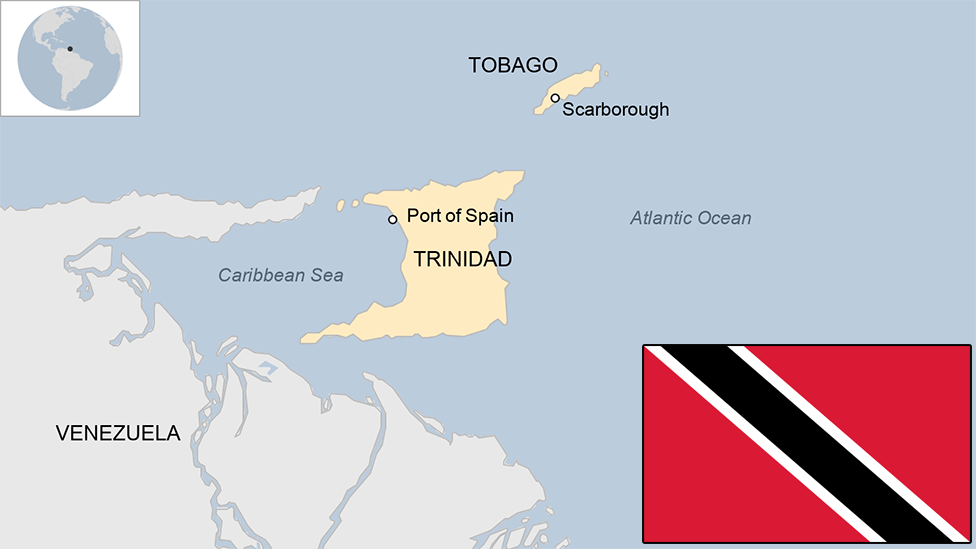Curacao profile
- Published
This page is no longer being updated. It was last updated on 11 September 2023
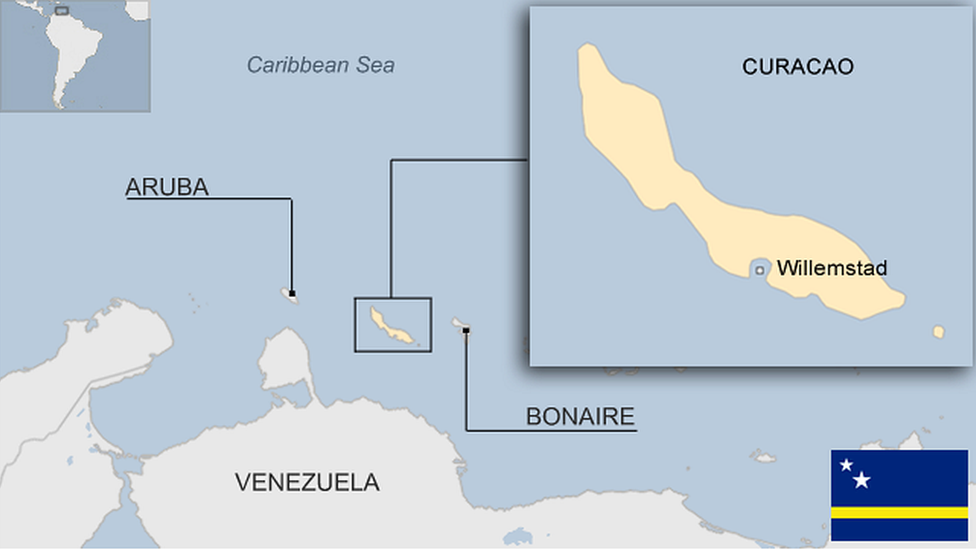
Curacao, a small Caribbean island off the Venezuelan coast, is an oil refining and tourist centre.
It became an autonomous country within the Kingdom of the Netherlands in 2010 in a change of constitutional status that dissolved the Netherlands Antilles.
While Curacao, Aruba and Sint Maarten became autonomous countries, the less-populated islands of Bonaire, Sint Eustatius and Saba now have city status within the Netherlands.
The islands, once called the Dutch West Indies, were colonised in the 17th Century.
Formerly the centre of the slave trade, Curacao was hard hit by the abolition of slavery in 1863 but its prosperity returned in the early 20th Century with the construction of refineries to service the newly discovered Venezuelan oil fields.
Read more country profiles, external - Profiles by BBC Monitoring, external
COUNTRY OF CURACAO: FACTS
Capital: Willemstad
Area: 444 sq km
Population: 155,000
Languages: Papiamento, Dutch, English
Life expectancy: 74 years (men) 81 years (women)
LEADERS
Head of state: The King of the Netherlands, represented by a governor.
Prime minister: Gilmar Pisas
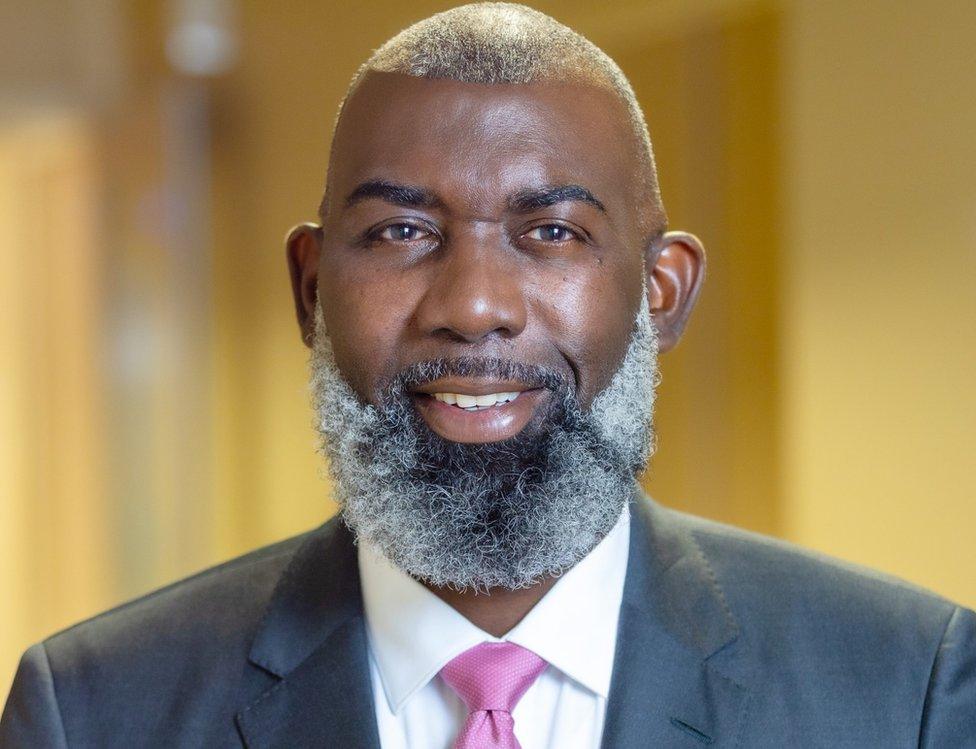
Gilmar Pisas has been prime minister since June 2021. It is his second term in office as he had previously served as prime minister between March and May 2017.
MEDIA
Curacao's media landscape is characterised by a substantial number of media outlets.
There are no fewer than 28 licensed radio stations, eight newspapers and at least three television stations, according to a 2016 report by Unesco.
Legislation does not currently distinguish between public, private and community radio. Curacao does not have any public service media. All of its media are commercial entities.
TIMELINE
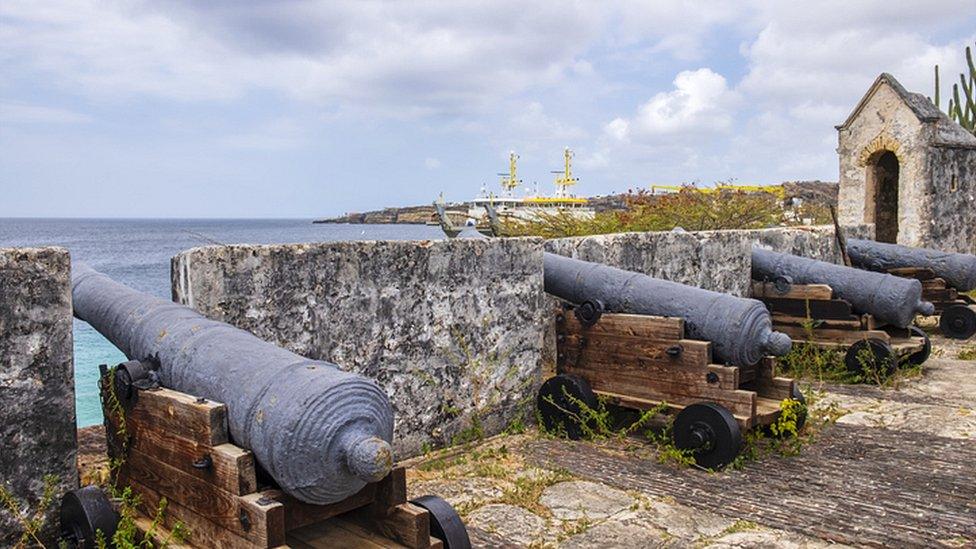
Fort Beekenburg is one of a handful of surviving fortifications which helped defend the island against pirates
Key dates in the history of Curacao:
1499 - Spanish expedition under Alonso de Ojeda visits the island. Over the next decades, the Spanish enslave most of the Caquetios or Arawaks for forced labour on the colony on Hispaniola.
1515 - Most of the native population is transported to Hispaniola as slaves.
1527 - Spanish permanently settle on Curacao.
1634 - During the Eighty Years' War of independence between the Republic of the Netherlands and Spain, the Dutch West India Company under Admiral Johann van Walbeeck invades the island and defeats the Spanish.
1662 onwards - Dutch West India Company makes island a centre of the Atlantic slave trade, often bringing slaves from west Africa to the island before selling them elsewhere in the Caribbean.
1795 - Major slave revolt under the leaders Tula Rigaud, Louis Mercier, Bastian Karpata, and Pedro Wakao.
18th-early 19th Century - Periodic British attacks on the island to wrest control from the Dutch. Dutch rule returns in 1815 at the end of the Napoleonic wars.
1863 - Dutch abolish slavery in their empire.
1914 - Discovery of oil in nearby Venezuela transforms Curacao's economy, with oil firms setting up refineries on the island.
1954 - Curacao and other Dutch Caribbean colonies joined together to form the Netherlands Antilles.
1969 - Discontent with Curacao's seemingly subordinate relationship to the Netherlands, racial discrimination and rising unemployment owing to layoffs in the oil industry trigger a series of riots.
2010 - The Netherlands Antilles is dissolved, and Curacao becomes a country within the Kingdom of the Netherlands, like Aruba and Sint Maarten, with the kingdom retaining responsibility for defence and foreign policy.
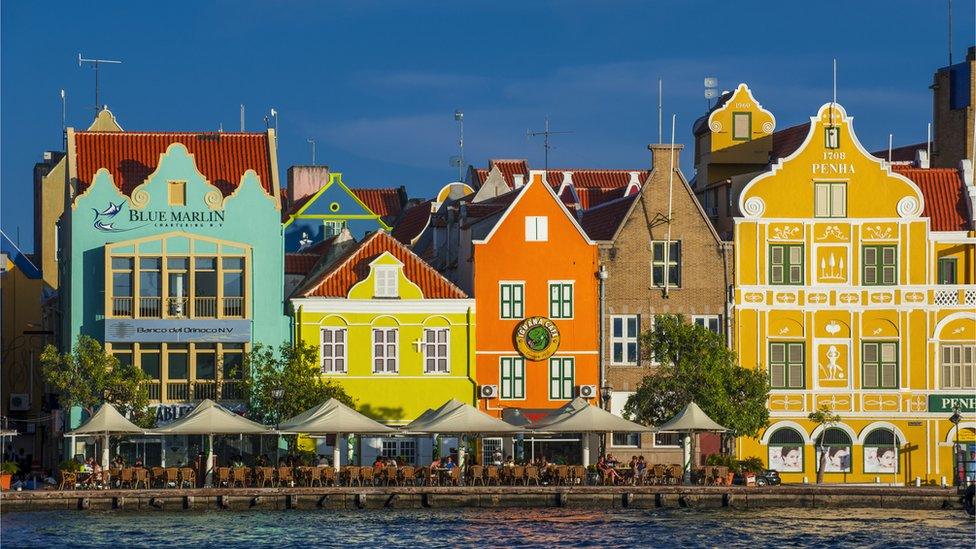
Houses on the waterfront in Willemstad, Curacao
Related topics
- Published14 October 2024
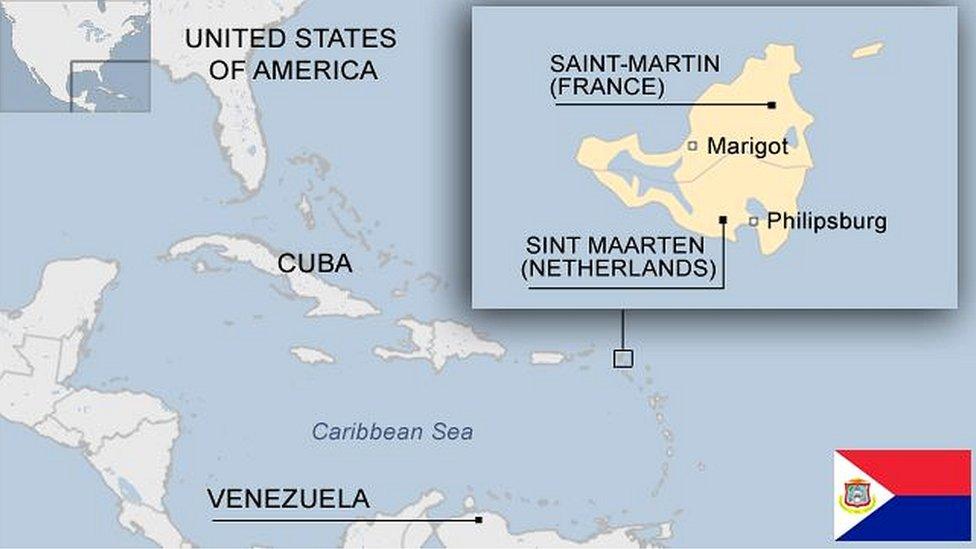
- Published11 September 2023
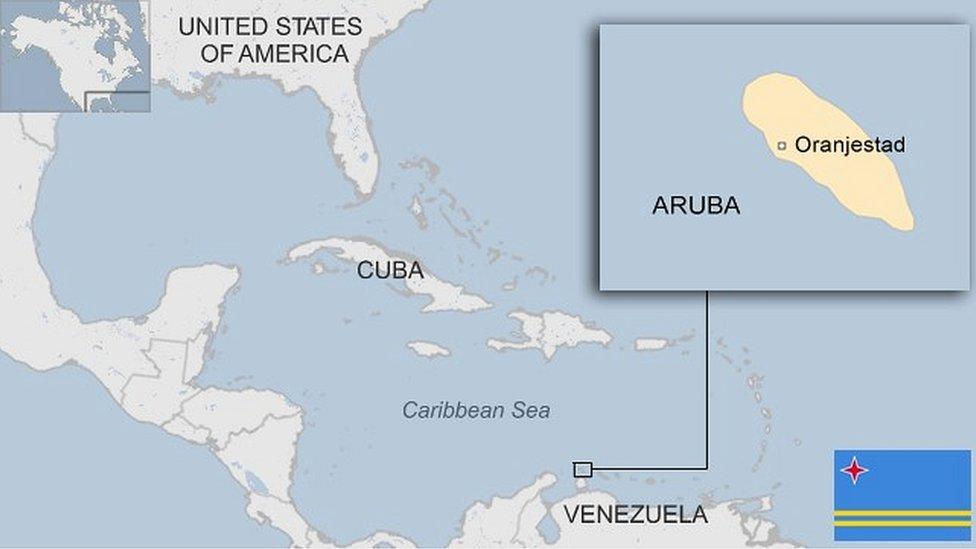
- Published14 February 2023
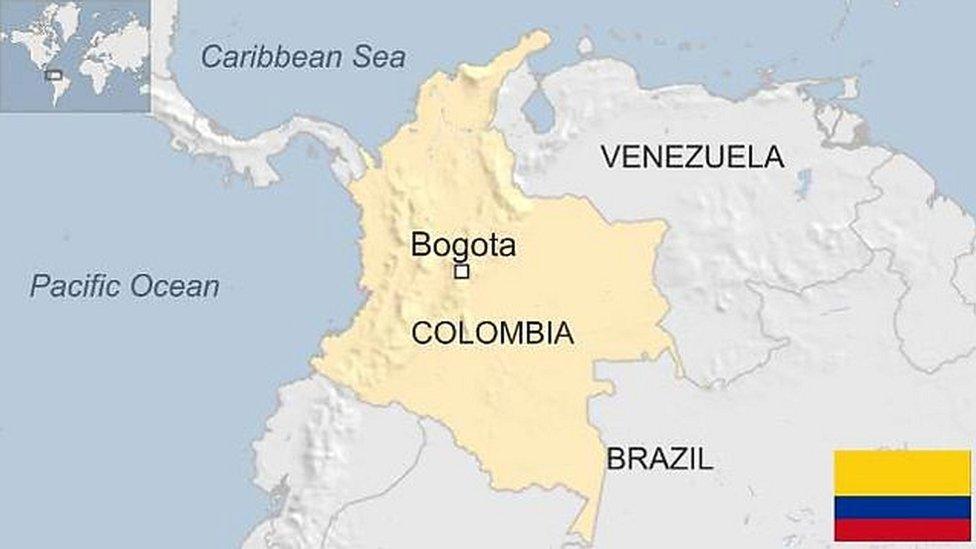
- Published9 September 2024
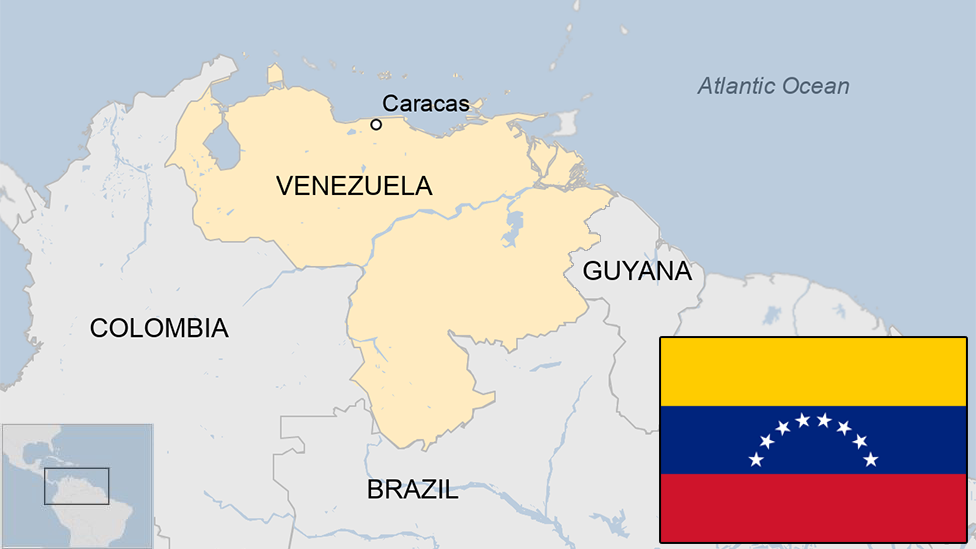
- Published27 March 2023
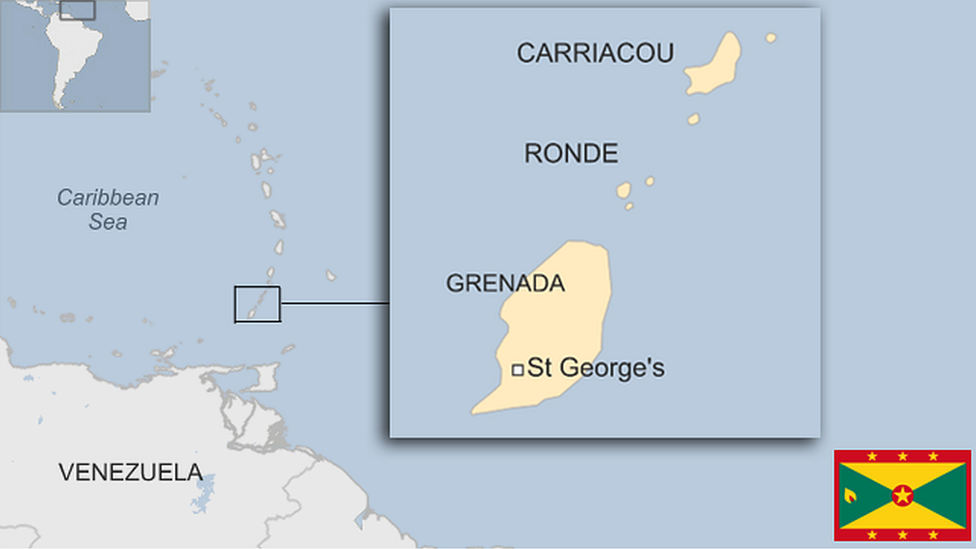
- Published24 April 2023
